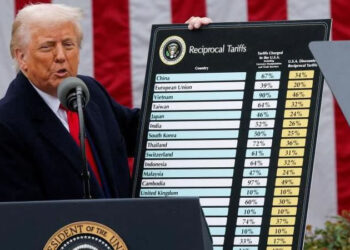By Ebi Kesiena
Libyans from all regions and walks of life are expressing frustration with the country’s divisions and are calling for national elections, a crucial step toward peace in the oil-rich North African nation, according to Stephanie Koury, the UN deputy representative in Libya.
Speaking to the UN Security Council, Koury noted that the widespread consensus on the current political impasse is unsustainable and that progress toward elections is essential.
Libya has been in turmoil since the NATO-backed uprising that ousted and killed dictator Moammar Gadhafi in 2011. The country has since split into rival administrations in the east and west, each backed by militias and foreign powers.
The current crisis was worsened by the failure to hold elections on December 24, 2021, and the refusal of Prime Minister Abdul Hamid Dbeibah to step down, prompting the east-based parliament to appoint a rival prime minister.
Koury, serving as the top UN official in Libya since April, emphasized the need for a “pact” to ensure that all parties respect the election outcomes. Libyans expressed deep concern over the country’s divisions and suggested roadmaps to elections. Koury underscored that ordinary Libyans desire peace, stability, prosperity, and reconciliation, calling for decisive and united action to advance the political process with international support.
In February, former UN representative Abdoulaye Bathily warned that without a unified government and prompt elections, Libya risked disintegration. Supporting this view, the African nations on the Security Council, Sierra Leone, Algeria, and Mozambique along with Guyana, urged the council to back an inclusive Libyan-led political process.
Meanwhile, Libya’s UN Ambassador Taher El-Sonni, representing the internationally recognized government in the West, called for national reconciliation as the only path to rebuilding trust and paving the way for elections. El-Sonni expressed the Libyan people’s fatigue with the ongoing stalemate, external interference, and the Security Council’s inaction, urging the council to allow Libyans to determine their own future.


































